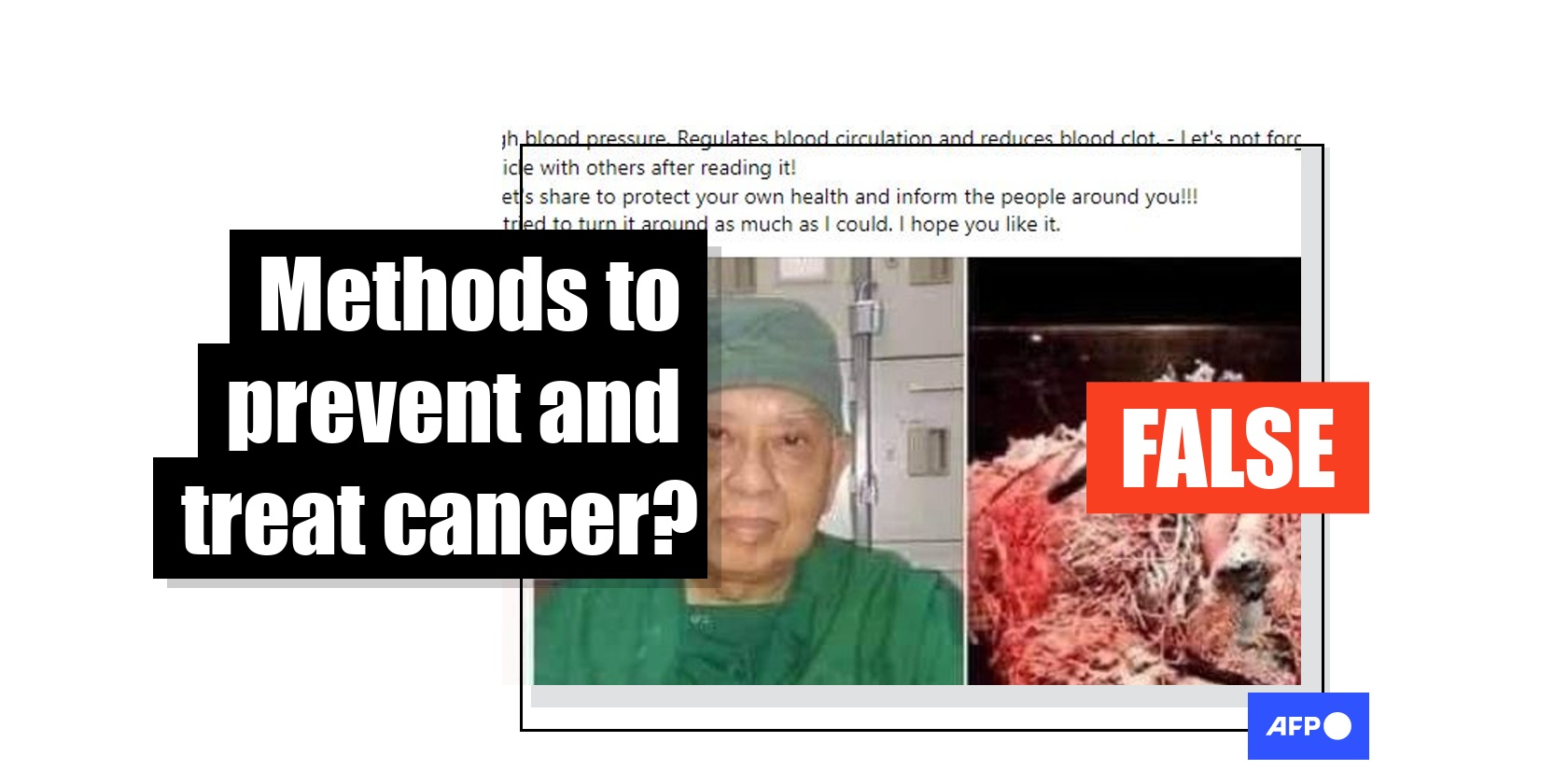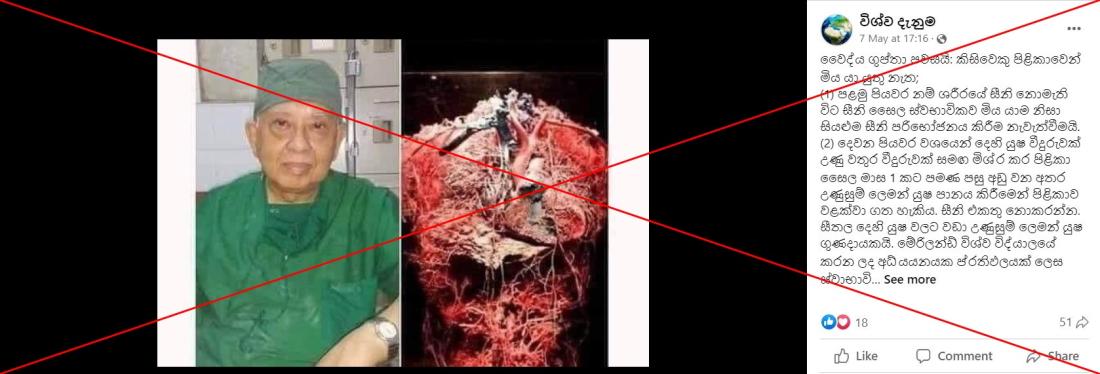
Health experts rubbish 'bogus' cancer advice shared on Facebook
- This article is more than two years old.
- Published on May 19, 2023 at 11:38
- Updated on May 19, 2023 at 11:39
- 3 min read
- By AFP Sri Lanka
"The first step is to stop consumption of all sugar," reads a Facebook post written in Sinhala and English shared on May 7.
"When there is no sugar in the body, cancer cells die naturally."
The post, shared on a page with more than 3,000 followers, lists more than 20 methods to supposedly prevent or treat cancer.
"Second step, drinking a glass of lemon juice mixed with hot water will decrease the amount of cancer cells after approximately one month," it says.
"The third step to reduce the risk of cancer is to consume three spoons of organic coconut oil morning and night."
It also recommends tips such as eating yellow and purple potatoes and avoiding food three hours before bed.
The post shows a picture of an unidentified man wearing a surgical gown who is quoted as saying: "Ignorance is not an excuse! I've been sharing this information for more than 5 years. Tell this to people around you."

Similar Facebook posts surfaced in Sri Lanka, the United States and Kenya -- and previously circulated in Thailand in 2019.
But Dr Prasad Abeysinghe, president of the Sri Lanka College of Oncologists, said the claims shared in the posts were "bogus" and could have serious health consequences.
"A patient diagnosed with cancer must undergo the specific prescribed treatments in order to set them firmly on the path to have a chance of recovery," he told AFP on May 12.
"Following claims circulating on social media that have zero scientific evidence in expectation of experiencing a recovery can have fatal consequences."
Sugar 'myth'
Cancer Research UK has rebuked claims that cutting sugar out of your diet will prevent cancer.
"Unfortunately, it's not that simple. All our healthy cells need glucose too, and there’s no way of telling our bodies to let healthy cells have the glucose they need, but not give it to cancer cells," it said in article published in 2017 and updated in 2020 (archived link).
"There's no evidence that following a 'sugar-free' diet lowers the risk of getting cancer, or boosts the chances of surviving if you are diagnosed."
Cancer Council Australia also said there was "no evidence of a direct association between sugar consumption and an increased risk of cancer of any type".
"Sugar is not a carcinogenic (cancer-causing) substance," it said in an article (archived link).
Meanwhile, clinical oncologist Dr A. J. Hilmy said there was "zero truth" to the claim that drinking lemon juice with hot water could fight cancer.
"If lemon water could accomplish such a feat, there would be no requirement to administer drugs," he told AFP on May 17.
"I ask the public to refrain from subscribing to such baseless claims and to always seek a doctor for any instructions."
AFP has previously debunked posts that claimed drinking lemon and water every day would prevent cancer cells from growing (archived link).
'Extremely misleading'
Health experts also said there was insufficient evidence to support the claim that coconut oil kills cancer cells.
A 2017 study published in the journal "Cell Death Discovery" found that lauric acid -- a compound found in coconut oil -- inhibited cancer cells, but stressed more research was needed to support using it in a therapeutic way (archived link).
Dr Bimalka Senevirathna, a senior lecturer with the University of Sri Jayawardenapura's Faculty of Medicine warned against "oversimplying" the results of scientific studies, which are performed in a controlled setting and with specific concentrations of a substance.
"There is not enough credible scientific evidence to claim that coconut oil available for daily consumption can kill cancer cells or prevent risk of cancer," she told AFP on May 17.
"Oversimplifying a research result to mean that spoonfuls of coconut oil a day will prevent cancer is extremely misleading."
Copyright © AFP 2017-2026. Any commercial use of this content requires a subscription. Click here to find out more.
Is there content that you would like AFP to fact-check? Get in touch.
Contact us
